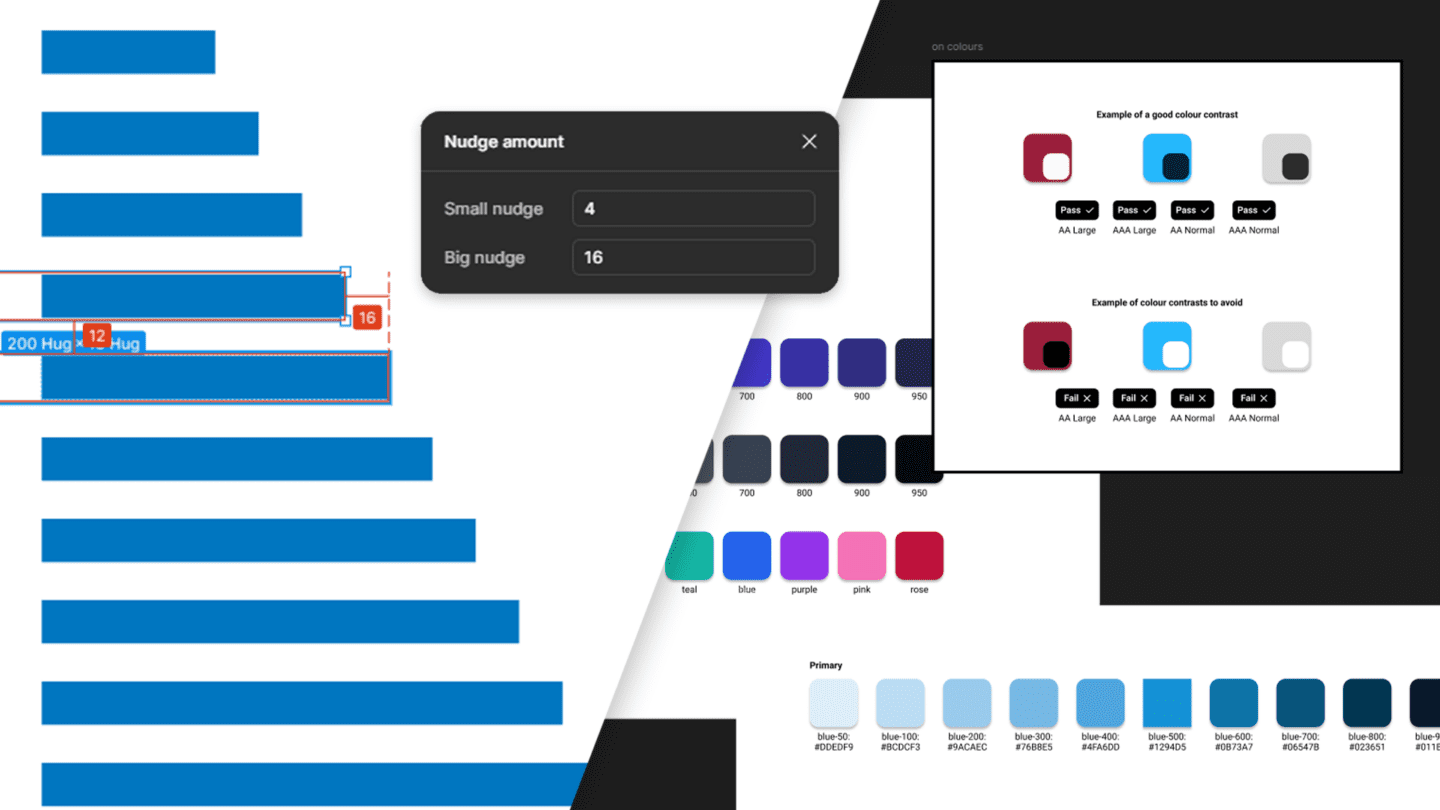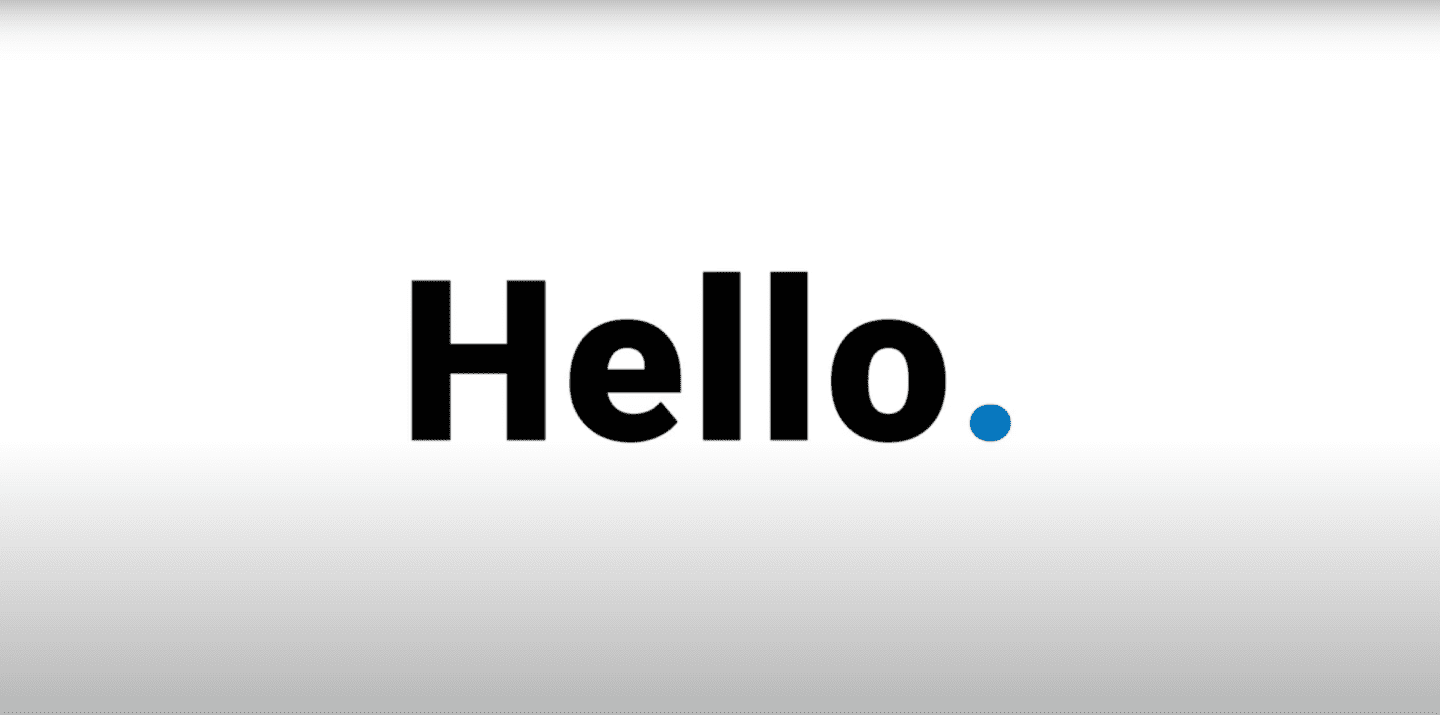It’s the app of the Summer, the game that everyone is talking about: Pokémon Go. Two weeks ago, it hadn’t even hit my radar. But following a ‘Squirtle’ of high-profile news stories about people falling off cliffs or quitting their jobs to become professional Pokémon Go trainers I had to find out what this is all about.
After a couple of weeks of heavy ‘testing’ (or more accurately desperately collecting Eevees) I’ve realised that I spend more time on Pokémon Stop than Go. So, why is everyone talking about it?
Great idea, poor Quality of Service
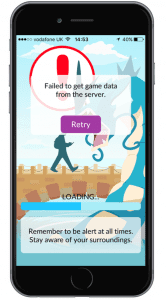
This has been my main issue with the game. If you are going to produce a highly addictive game and scale it quickly around the world: have enough servers to cope with demand! Today, it is really inexcusable to not have scalable infrastructure to deliver a consistent quality of service.
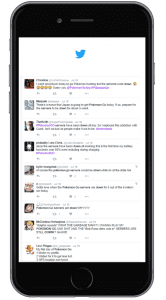
Not only is it frustrating and confusing when your screen freezes, when you have created an addiction it can cause real psychological impact. This was clearly evidenced when the servers went down a week after launch for hours.
Now I think that I’m a reasonably, rational person but even I spent nearly half an hour sitting at my kitchen table desperately turning the app on and off and checking Twitter for updates. Sure, part of that was spurred on by the fact that François had challenged me to get to level 13 by the Monday. I also had a clear afternoon and was looking forward to Pikachu collecting so this compounded my frustration.
Whilst since that dark weekend of switching things on and off, the server issues seem to be getting better I still can’t run the app for more than 15 minutes at a time. This is worse when I am mid-battle or throwing a Pokéball. And what I find interesting, is that it affects me both on a functional and emotional level.
Functional disappointment
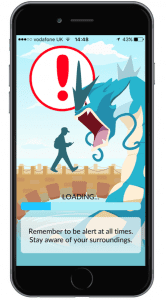
Functionally I expect my phone to work. I run have 100s of apps and have a huge number of successful interactions – in fact I am a self-described addict. If I’m on a WiFi network, I have been pre-conditioned that everything should work.
If it doesn’t, I can be forgiving once. Then I have a bit of a meltdown. Especially when I really want to do something, and the app is just freezing. I get stuck in the endless loop of shutting down, opening up, waiting for a gym to appear where it should. Even whilst trying to take a screenshot, I have had to open and close the app 6 times!
You’ll notice that I haven’t even mentioned the interaction patterns which actually I like a lot. Or the cool augmented reality view, that actually works. Which is a shame, as I think that the app functionality – when it works – is great. But I often don’t get the chance to appreciate it because I’m too busy saying ‘Fracking Pokémon’ as I close the app and re-open it.
That, combined with the battery drainage and data costs of playing outside, is why if I wasn’t testing this, I would have abandoned this game on the first weekend. That’s not to say I wouldn’t have come back to it when all reports say it’s fixed. Because Niantic did manage to build an app that develops an emotional attachment.
Emotional engagement leading to disappointment
One of the reasons that I got so frustrated is that the game is clever and engaging. Don’t get me wrong it’s simple. There are really only 4 things that you can do in the game:
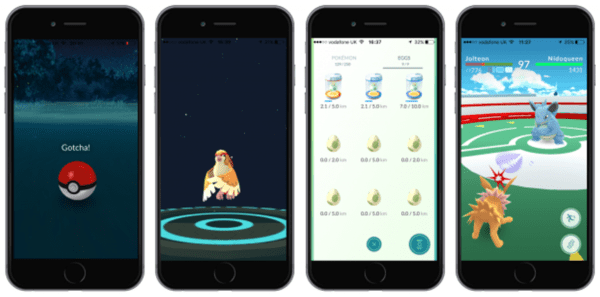
- Collect Pokémon (and other items)
- Evolve Pokémon
- Hatch Eggs (although this has the same outcome of collecting Pokémon)
- Fight (either training or battles)
But that is the beauty of it. These four things appeal to different types of people. Take me for example. I’m a collector. I have bought into the strapline ‘Gotta catch em all’ and I want to! Even though I need to visit all 7 continents. And I can’t be the first to catch all the UK critters, nor am I as skilled as Chuck Norris:

Now I am not planning to give up my day job to do this, but I still feel the psychological pull of having to have them. So, I could almost happily go around just collecting, evolving, hatching and getting new and hopefully cuter, and cuter, Pokémon.
I am not a trainer by nature. I don’t really want to hurt my Pokémon. However, I have discovered that I am hugely territorial. So, I have been battling but, only in the office once I had tested it on the street. And why? Because my real world and gaming world has collided in a convenient place. Therefore, I feel I need to defend the location in the gaming world and ‘own my gym’. I have no desire to conquer anybody else’s but I’ll be damned if Team Valor or Mystic takes over mine. And this emotional reaction to losing or gaining territory is incredibly strong. To the point that I have been known to fist pump at my desk like Andy Murray winning at Wimbledon!
This game has a powerful emotional effect on me and others. It is created by tapping into our primal instincts of collecting, owning, fighting and defending. Therefore, when the functionality fails this engenders a deeper sense of frustration, anger and disappointment. If I wasn’t so emotionally stimulated by being able to complete a task, I wouldn’t be so annoyed when it doesn’t work.
Change in human behaviour
“Are you lost mate or are you just playing Pokémon Go?” These are the words that a friend of mine asked a man on the street outside Tesco’s who was desperately staring into his phone. The response was a sheepish “Pokémon Go”.

This is not a random one-off incident. As there is a gym at the Creative Exchange, we often see groups of people (mostly men aged 25-40) standing outside desperately tapping their phones and trying to take over my gym! There are groups of people hanging outside my house as a neighbour very generously puts at least 2-3 lures on the Pokéstop outside. Grown men are walking down the street saying “Pika-Pika-Pikachu” in baby voices.
In two weeks, people have literally changed their behaviour on the street and how they are interacting with the world through their app. I have learnt loads more about my local area because of the information on Pokéstops. I’ve noticed some great street art in Leith that I was walking past because it is a Pokéstop. I’ve done more recycling and walked more to work to hatch my eggs. And interestingly I’ve noticed that unlike other games or apps which get heavy interaction usage like Tinder – Pokémon Go is actually encouraging people to go out and play together. It is not uncommon to see pairs of Pokemon trainers out and jointly searching for Pokémon.
These are all positive changes that could really help get people moving and talking and interacting between the real and digital world in a whole new way.
Negative impacts
But there are negative impacts too. The news has been littered with sad stories of people injuring themselves and even dying whilst trying to catch a Pokémon. People are lured into previously ‘no-go zones’ to have their phones stolen. The reaction to the servers going down on Twitter was disturbing and showed clear signs of addiction in volumes of players. The game works on the freemium model. So, whilst it is possible to play without spending a penny there are a few people out there who are clearly buying many Pokécoins. And some phone bills (including mine) are going to be way higher than usual as I have exceeded my data allowance. This means that Pokémon Go could be quite costly for some players health as well as wallet.
Is Pokémon Go Good or bad?
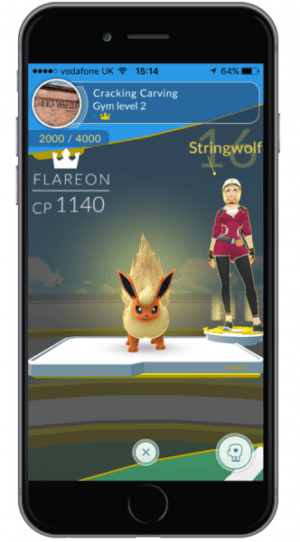
This is the real question – is Pokémon Go good or bad?
Well as a game it is great, fantastic simple experience that if you keep yourself in check you can have a lot of fun for a limited expenditure.
In terms of provision, it is poor, and I hope that this will improve with time. But, the quality of service is certainly a big enough problem for me to make me disinterested and give my attention to something else.
In terms of human behaviour and society? This is the big question for me and in truth I don’t know the answer just yet. But I think it is fascinating. And one thing I am sure of is conferences will have ‘What banks can learn from Pokémon Go’ talks.
If you have any comments or would like to discuss the functional and emotional interaction between people and their apps then get in touch!
[NB: It is possible to get a Pikachu straight off using this cheat – I unfortunately only discovered this three days in].
